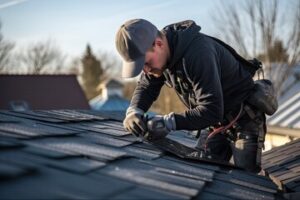Understanding an overview of a plumber’s core tasks helps highlight the importance of their role in maintaining a functional home. Plumbers are skilled professionals responsible for installing, repairing, and maintaining the complex network of pipes, fixtures, and appliances that facilitate water distribution and waste removal in residential and commercial properties.

Their work ensures that clean water flows into a building and that wastewater is properly carried away, contributing to the overall safety and functionality of the property. Visit Website to learn more.
The core tasks of a plumber encompass a wide range of responsibilities that require technical expertise, problem-solving skills, and attention to detail.
One of the primary tasks of a plumber is installing plumbing systems in new construction and renovation projects. This involves planning the layout of the plumbing network, selecting the appropriate materials and fixtures, and assembling the pipes and connections according to industry standards. Plumbers work closely with contractors, architects, and engineers to ensure that the plumbing system integrates seamlessly with the overall design of the building. They install water supply lines, drainage systems, and venting systems to ensure proper water flow and waste removal. The installation process requires precision and knowledge of building codes and regulations to ensure that the plumbing system meets safety and performance standards.
Repairing and replacing damaged or malfunctioning plumbing components is another key responsibility of a plumber. Over time, pipes, faucets, and fixtures can develop leaks, corrosion, and blockages that affect the performance of the plumbing system. Plumbers diagnose the source of the problem using specialized tools and techniques, such as pressure testing and video inspections. Once the issue is identified, they repair or replace the affected components to restore proper function. This may involve soldering pipes, replacing worn washers and seals, or installing new fixtures. Plumbers ensure that all repairs are secure and that the system functions efficiently to prevent future problems.
Clearing clogs and blockages is another common task that plumbers handle. Drainage systems can become clogged due to the buildup of grease, hair, soap residue, and foreign objects. Clogged drains can cause slow drainage, unpleasant odors, and even water backups if left untreated. Plumbers use tools such as drain snakes, augers, and hydro jetting equipment to remove blockages and restore the flow of water through the pipes. They also inspect the drainage system for signs of damage or deterioration and recommend any necessary repairs to prevent future clogs.
Installing and repairing water heaters is another important responsibility of a plumber. Water heaters provide hot water for household and commercial use, including bathing, cooking, and cleaning. Plumbers install new water heaters according to manufacturer specifications and local codes, ensuring that they are properly connected to the water and energy supply. They also perform routine maintenance, such as flushing the tank to remove sediment buildup and checking the thermostat and heating elements for proper function. If a water heater malfunctions, plumbers diagnose the problem and replace faulty components, such as heating elements, pressure relief valves, and thermostats, to restore reliable hot water service.
Maintaining and repairing sewer systems is a critical aspect of a plumber’s work. Sewer lines carry wastewater from the property to the municipal sewer system or a septic tank. Over time, sewer lines can become blocked by tree roots, grease buildup, and foreign objects, leading to slow drainage, foul odors, and sewage backups. Plumbers use video inspection equipment to locate the blockage and determine the best method for removal. They may use hydro jetting, root cutting, or trenchless repair techniques to clear the blockage and restore proper flow. If the sewer line is damaged, plumbers may need to excavate the area and replace the damaged section to prevent further issues.
Installing and maintaining plumbing fixtures is also part of a plumber’s core tasks. This includes sinks, toilets, showers, bathtubs, and dishwashers. Plumbers ensure that the fixtures are properly aligned and securely connected to the water supply and drainage systems. They also test the fixtures for leaks and proper function before completing the installation. If a fixture becomes loose or develops a leak, plumbers diagnose the problem and make the necessary adjustments or replacements. Ensuring that fixtures are properly installed and maintained helps prevent water damage and ensures that the plumbing system operates efficiently.
Detecting and repairing leaks is another essential task that plumbers perform. Leaks can occur in pipes, fixtures, and water supply lines due to corrosion, high water pressure, and poor installation. Even small leaks can lead to significant water waste and structural damage over time. Plumbers use specialized equipment, such as leak detection devices and pressure testing tools, to locate the source of the leak. Once identified, they repair the leak by replacing damaged components or resealing joints and connections. Prompt leak repair helps conserve water and prevent costly repairs to the surrounding structure.
Plumbers also work with gas lines, installing and maintaining the piping that supplies natural gas or propane to appliances such as stoves, water heaters, and furnaces. Gas line installation requires careful planning and adherence to safety regulations to prevent leaks and ensure proper ventilation. Plumbers test the gas lines for leaks and secure all connections to prevent gas buildup and exposure. If a gas leak is detected, plumbers shut off the gas supply, locate the leak, and repair or replace the affected section of the pipe. Ensuring the safe operation of gas lines is crucial to preventing health hazards and fire risks.
Maintaining plumbing systems through regular inspections and preventive maintenance is another key responsibility of a plumber. Periodic inspections allow plumbers to identify potential problems before they become serious issues. This includes checking for leaks, testing water pressure, inspecting pipes for corrosion and damage, and cleaning drainage systems. Plumbers also recommend upgrades and improvements to enhance the efficiency and performance of the plumbing system. Regular maintenance helps extend the lifespan of the plumbing system and reduces the risk of unexpected failures and costly repairs.
Plumbers also play a role in improving water quality by installing and maintaining water filtration and purification systems. These systems remove impurities, such as chlorine, sediment, and heavy metals, from the water supply, providing cleaner and healthier water for household and commercial use. Plumbers assess the water quality, recommend the appropriate filtration system, and install it according to manufacturer guidelines. They also perform routine maintenance, such as replacing filters and cleaning the system, to ensure that it functions properly. Improving water quality enhances the safety and taste of the water supply and reduces the risk of health issues caused by contaminants.
Emergency plumbing services are another important aspect of a plumber’s work. Plumbing emergencies, such as burst pipes, sewage backups, and overflowing toilets, require immediate attention to prevent water damage and restore functionality. Plumbers respond to emergency calls, assess the situation, and take immediate action to contain the damage and repair the problem. This may involve shutting off the water supply, repairing broken pipes, and clearing blockages. Their quick response and expertise help minimize damage and restore the plumbing system to proper working order.
Plumbers are also involved in remodeling projects, where they upgrade and reconfigure plumbing systems to accommodate new layouts and fixtures. This includes rerouting water supply lines and drainage systems, installing new fixtures, and ensuring that the plumbing system meets modern standards and regulations. Plumbers work closely with contractors and designers to integrate the plumbing system with the overall design of the project. Their attention to detail and technical knowledge ensures that the remodeled space functions efficiently and meets the needs of the occupants.
In addition to technical skills, plumbers require strong problem-solving and communication abilities. They assess complex plumbing issues, determine the most effective solutions, and explain the problem and repair process to the property owner. Plumbers also provide advice on maintaining the plumbing system and preventing future issues. Their ability to diagnose problems accurately and communicate solutions clearly enhances customer satisfaction and builds trust.
Plumbers are essential to maintaining the comfort, safety, and functionality of residential and commercial properties. Their core tasks encompass a wide range of responsibilities, from installing and repairing plumbing systems to maintaining water quality and responding to emergencies. Their technical expertise, attention to detail, and commitment to quality work ensure that plumbing systems operate efficiently and reliably. Through their work, plumbers contribute to the health and well-being of the community by providing clean water and effective waste removal systems.
4o
